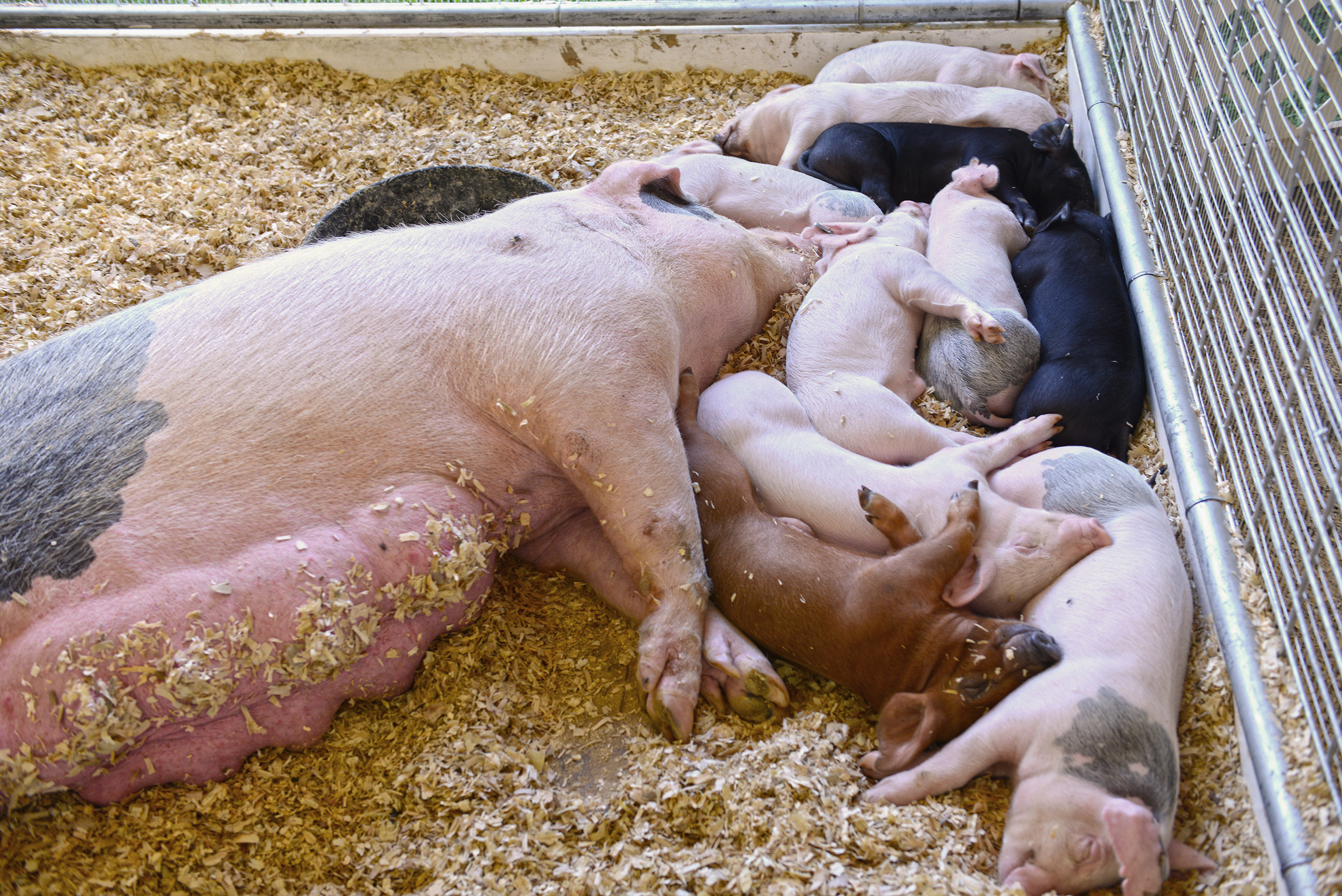Childhood Obesity and its Related Pressures and Prejudice
Childhood obesity can be damaging to physical well-being and also carries negative emotional and social consequences. Overweight and obese children are frequently stereotyped within the media and subjected to teasing and discrimination across a range of different environments. Exposure to weight-based pressure and prejudice in childhood can have long term effects, hindering social, academic and emotional development and promoting weight-gain and poor self-esteem.
Bad Patterns Start in Childhood

Where do the Different Pressures Involved with Childhood Obesity Come From?
Negative weight-related stereotyping, often referred to as weight bias or weight stigma, can affect people of all ages and is becoming increasingly prevalent throughout society. Research has shown that even very young children can hold prejudiced attitudes towards overweight and obese people, with children as young as two years old identifying overweight people as being mean, selfish and more likely to be bullies. Obese children are more frequently rejected and less well-liked by their peers than non-obese children, with studies involving elementary and middle school children finding that most participants within those age groups display marked reluctance to include obese peers as friends.
There is also evidence to suggest that children’s negative attitudes towards overweight and obese individuals worsen as they get older. By adolescence the overwhelming majority of overweight children will have encountered negative experiences as a result of their weight, ranging from name-calling and teasing to social exclusion and physical violence, at the hands of their peers. Weight bias differs from other forms of prejudice such as racism or sexism in that self-acceptance of stereotypes is very high. Overweight and obese children are just as likely to hold the same negative beliefs about weight as other children, and can therefore expect little support or comradeship from their obese or overweight peers.
Why weight bias should begin so early in life is not clear but it has been theorized that the current trend towards derogatory portrayals of overweight characters within the media may contribute to the pervasiveness of negative weight-related stereotypes amongst children and young people.
Can Obesity Affect Your Child's Performance at School?
Teachers tend to have lower expectations of obese children relative to their non-obese peers across a range of areas and studies of attitudes amongst teachers and school healthcare workers have found negative attitudes towards obese students to be highly prevalent, with significant numbers of participants in a study of high school staff agreeing that obese children are less tidy, more emotional, less likely to succeed at work and more likely to have family problems than their non-obese classmates. A third of participants also concurred that becoming obese is one of the worst things that could happen to a person. Research involving obese and overweight students has found that children are often aware of such prejudices amongst school staff, reporting them to be a source of distress. It is also common for obese children to experience lack of support from teachers with regards to bullying by peers, with many reporting failure by their school to uphold or enforce policies relating to teasing and harassment.
Obese students are significantly less likely to be accepted to college than students with equivalent application rates and grades and there have been cases of students being dismissed from college because of failure to lose weight.
Teasing is not just limited to the classroom. Obese children are frequently subjected to pressure and weight-related taunting by family members. Some parents and caregivers feel blamed or criticized for their child’s weight by healthcare workers, teachers or other parents and report feeling frustrated or angry because they do not know how to help their child. They may withhold support from a child who is bullied or ostracized in school in the mistaken belief that social pressure from peers will encourage them to lose weight. Such beliefs can also lead parents to adopt stigmatizing attitudes and behaviors themselves. Obese parents are just as likely to endorse negative stereotypes as non-obese parents and can inadvertently pass those views on to their own child. Studies have also shown that obese females typically receive less financial support from their families for college, even when controlling for factors such as parental income and family size.
The Long-Term Negative Impact of Childhood Obesity
Early exposure to weight bias can have a long lasting impact upon a child’s social, academic and emotional development, occurring at a time when they are building social skills and learning about interpersonal relationships. Studies involving obese adults have found weight-based teasing in childhood to be associated with increased levels of body dissatisfaction and poor self-perception of attractiveness in adulthood, particularly amongst women.
Obese children frequently experience reduced quality of life across multiple domains including physical and psychosocial health, emotional and social wellbeing and school functioning, with those who believe themselves to be responsible for their own obesity particularly vulnerable to low self-esteem and reduced levels of happiness generally.
Several studies have linked weight-based teasing to depression, poor body image and eating disturbances and adolescents that report being teased about their weight are more likely to engage in suicidal ideation and suicide attempts than their peers. Peer victimization can lead to social isolation and is associated with reduced participation in physical activities such as games and sports. Overweight children and young people often experience rejection and teasing during such activities and may seek to avoid participation altogether if negative experiences are a regular occurrence.
Set and Good Example and Ask for Help from your Pediatrician
Parents and caregivers eager to help their child lose weight frequently engage in behaviors that can inadvertently contribute towards the child’s obesity. Excessive restriction of food choices and focus on eating patterns can interfere with the child’s own hunger and satiety cues, making it harder for them to regulate their own energy intake. Practices that attempt to encourage a child to consume a particular food tend to increase the child’s dislike of that food, whilst restricting access to a palatable food often results in an increased preference for that food. Strict parental management of eating behaviors denies the child valuable opportunities to learn self-control around food and can therefore lead to excessive consumption in less restrictive settings. Overeating when away from parental influence can also occur as a means of psychological compensation for excessive parental control at other times.
Recognizing and Dealing with Weight Bias
No evidence exists to support the widely held belief that social pressure facilitates weight loss; indeed the opposite is generally true, yet some parents consider the fact that their child is being bullied to be a source of motivation to lose weight and therefore choose to ignore or even condone it. A more appropriate course of action would be to make sure that the child understands that bullying and teasing are not acceptable, and that it is not their fault that they are being targeted. Focusing on the child’s positive qualities and encouraging participation in activities that boost their confidence and self-esteem can offset the negative effects of teasing.
Signs that a child may be subject to weight-based bullying or teasing include:
- Sudden refusal to participate in previously enjoyed activities, particularly sports or games.
- Talking about themselves in derogatory or negative terms, particularly relating to weight or physical appearance. Conversely, becoming reluctant to discuss their weight or appearance.
- Decline in academic performance, possibly accompanied by loss of interest in schoolwork, refusal to attend school or showing signs of distress or unhappiness on return from school.
- Unexplained bruises, scratches and other injuries.
- Damage to or loss of belongings.
- Difficulty sleeping.
- Frequent complaints of headaches, stomach pains or other physical symptoms.
- Being accused of bullying
Research indicates that obesity is a risk factor for perpetration of bullying behavior, particularly in boys. This may occur due to the physical dominance of obese boys over their peers, but it could also be a reaction to the experience of being bullied, with the child projecting the bullying behavior they have been subjected to.
The above list is by no means comprehensive and some children may display no outward signs that they are being affected by teasing or bullying. It is also important to remember that bullies can target a child in a variety of ways including teasing or social exclusion through text messages, email or social networks, as well as face-to-face taunts and overt physical threats or attacks.
Suggestions for Dealing with Childhood Bullying
If bullying is taking place within a school setting it can help to seek support and intervention from teachers and school staff and where prejudice amongst healthcare workers is suspected it may be appropriate to observe their interactions with the child. However, some children may be afraid of making the situation worse by telling tales, so it is also essential to ascertain their own thoughts and feelings about how best to proceed.
Discussing the child’s beliefs about obesity and weight can help identify sources of anxiety and low self-esteem and parents and caregivers may also wish to examine their own beliefs about weight and seek to educate themselves about the complex genetic, environmental, behavioral and physiological factors that contribute towards obesity. Adults who are negative about their own weight or physical appearance can easily pass their views on to children. Avoiding such behaviors and providing positive examples of overweight or obese people can serve to counteract stereotyping.
Positive Ways to Encourage Healthy Eating in your Children
Attempts to control children’s diets are frequently counterproductive and most children are capable of moderating their own energy intake if allowed to do so from an early age. Research shows that children eat more fruit and vegetables when their parents do, and are vulnerable to picking up on parents’ unhealthy eating patterns. Therefore it is more effective to lead by example and model healthy eating than to put children under pressure to eat healthy foods. In order to eat healthily, children need access to suitable foods and where appropriate should also be taught how to prepare them. Rather than placing particular focus on an individual child’s weight or attempting to make them feel guilty about their habits relating to weight or food, it is preferable to promote the benefits of healthy eating and regular exercise for the whole family, with an emphasis on health over thinness or body shape.
Limiting your Child's Time with Television may help Obesity
Time spent watching television is strongly linked to obesity in adults and children. According to recent research, each additional hour per week a toddler spends watching television contributes towards an increase in waist size in adulthood. The reasons for this are not clearly understood, but it is known that in addition to promoting physical inactivity, watching television is associated with a tendency to consume more unhealthy energy-dense foods and less fruit and vegetables.
Additionally, television can also encourage lack of eating awareness or mindless eating and can distract from hunger cues, leading to overeating due to excessive hunger later on. Exposure to adverts for food may also be implicated: the greatest proportion of adverts shown during children’s television programs are for food, with the overwhelming majority of these being for foods of low nutritional value, and children’s requests for foods have been shown to correlate closely with the frequency at which they saw them advertised on television.
Reducing sedentary behavior can promote weight loss, and substituting time in front of the television with physical activity offers significant benefits in terms of overall wellbeing. Choosing an activity that the whole family or group can participate in avoids placing undue emphasis or pressure on a particular individual and provides everyone with access to the same benefits.


